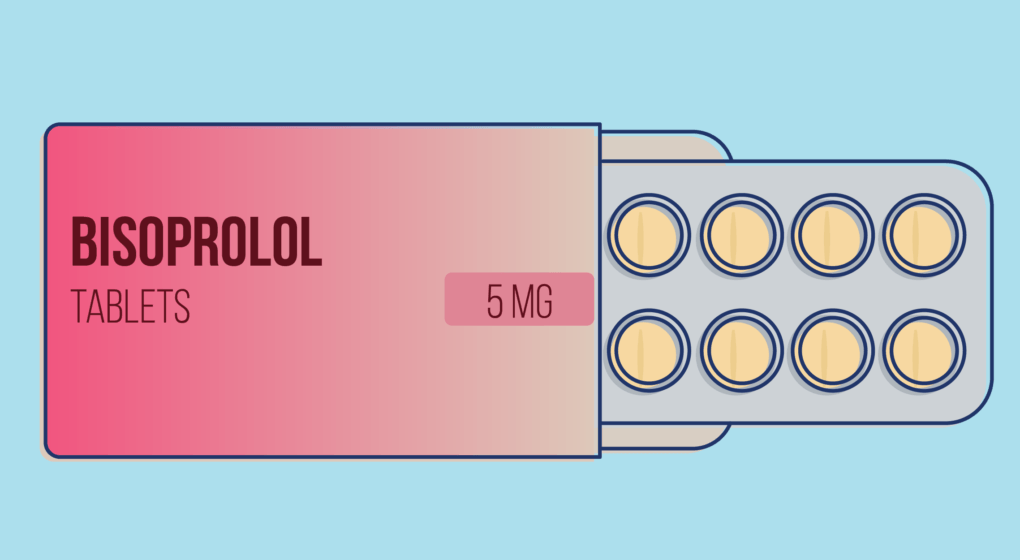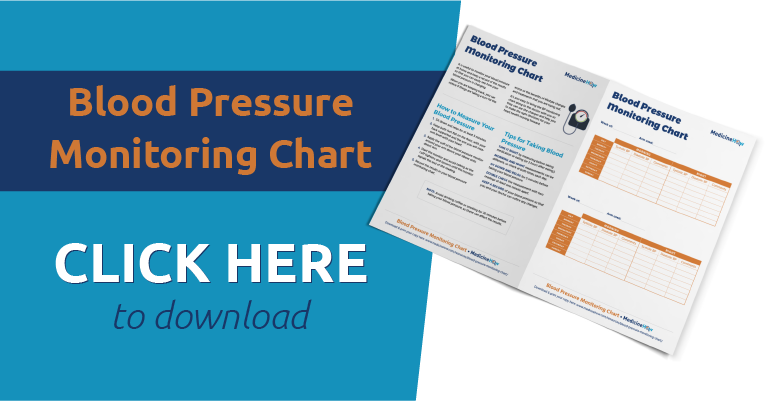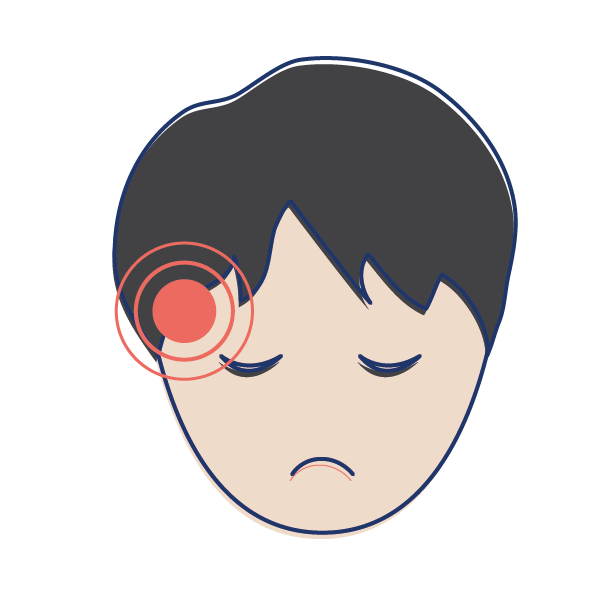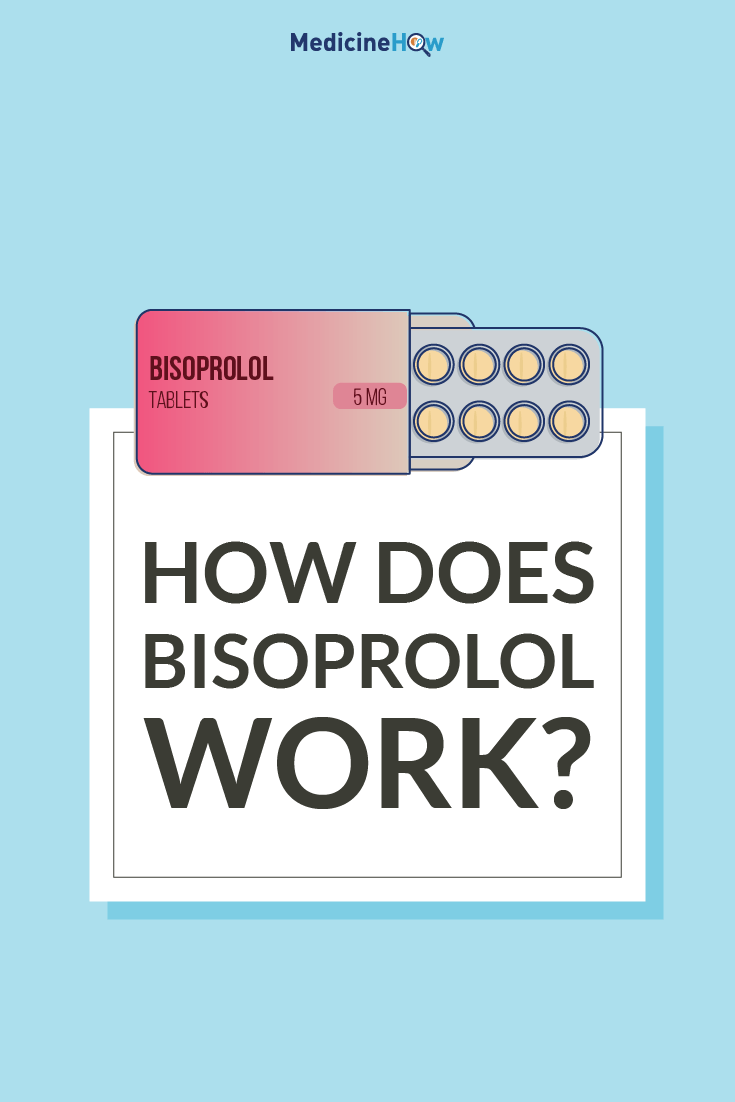
Bisoprolol is a type of drug called a beta blocker that works by blocking certain receptors, called beta receptors, in your heart. As a result, the heart muscles are not able to contract as often or and forcefully, leading to a lower heart rate and volume of blood pumped around your body. This is useful to protect your heart if you have heart failure.
Brand Names and Doses
Bisoprolol is the generic name of the drug, which is the name of the active ingredient in the medication that has an effect. There are several different brand names that contain bisoprolol, so you might be more familiar with one of these:
- Bicor
- Bicard
- Bispro
All of these brand names contain bisoprolol and they all do the same thing – they are produced by different pharmaceutical companies.
A low dose of 1.25 mg is available only for the Bicor brand and there are several other doses for all of the brands: 2.5 mg, 5 mg and 10 mg.
![]() In the beginning, it is best to start taking a low dose of bisoprolol and gradually increase the dose to get the desired results to allow your body to adjust to taking the medication and reduce the risk of side effects. Often, your doctor may recommend 1.25 mg a day for one week and, if your body feels okay, increasing to 2.5 mg a day. The maximum maintenance dose is 10 mg daily, although the right dose for you depends on your body.
In the beginning, it is best to start taking a low dose of bisoprolol and gradually increase the dose to get the desired results to allow your body to adjust to taking the medication and reduce the risk of side effects. Often, your doctor may recommend 1.25 mg a day for one week and, if your body feels okay, increasing to 2.5 mg a day. The maximum maintenance dose is 10 mg daily, although the right dose for you depends on your body.

What type of drug is it?
Bisoprolol is a type of drug called a beta blocker, which is a group of medications that all work in a similar way. Other beta blocker drugs include:
Even though they are all in the same class, there are a few subtle differences between them. What makes bisoprolol stand out?
What makes bisoprolol stand out?
Bisoprolol works specifically on B1 receptors found in the heart and has less effect on other B2 receptors found in other parts of the body, such as the lungs. This is a better choice for people that suffer from lung diseases, such as asthma, which may get worse taking other beta blocker medications.
Bisoprolol is also excreted from the body both in your urine and by being chemically changed into other substances in your liver. This means that the concentration and effects of bisoprolol in the body can be greater if your kidneys or liver aren’t working as well as usual. If you have problems with either of these organs, you may need to use a lower dose of bisoprolol than usual.
How does bisoprolol work?
The heart plays an important role in your body by pushing the blood through your blood vessels to where it needs to go in your body.
Beta-adrenergic receptors are found in the heart and a few other places around the body that detect a message and tell the muscles in the area it contract together. In the heart, this means that the heart muscles contract together, leading to a heart beat that pushes the blood out and into your blood vessels.
Beta blockers stop this process from happening normally. They attach to the beta receptors so that there is no room for the normal molecules to bind to the receptor and the message isn’t received as usual.
This doesn’t stop the heart from functioning altogether, but it does slow the heart down. The muscles contract less often leading to a slower heart rate and less forcefully leading to lower blood pressure.
What is it used for?
Bisoprolol is usually used in combination with other medications for blood pressure, like a sartan or an ACE inhibitor, to reduce the risk of serious events for people with heart failure. Because of the way it can help to reduce the heart rate and the blood pressure, bisoprolol puts less stress on the heart.
It can sometimes also be used for other conditions, such as hypertension, arrhythmias and angina, but this is less common.
Side Effects
 The most common side effects of bisoprolol are due to the way we want the drugs to work in the body – it’s just working too well. Some signs of this are:
The most common side effects of bisoprolol are due to the way we want the drugs to work in the body – it’s just working too well. Some signs of this are:
- Low heart rate (bradycardia)
- Headache
- Tiredness
- Dizziness
- Flushing
If this happens to you, it is best for you to talk to you doctor about what to do. Usually, just lowering the dose can help to resolve these signs and get your blood pressure back into the normal range. It is for this reason that you usually start on a low dose and gradually increase the dose for the best effect.
Sometimes you may also feel nauseous, have diarrhoea or a cold sensation in your extremities like your hands and feet when you take bisoprolol. For a complete list of the side effects, you should see the medicine information leaflet.
Bisoprolol is meant to be taken long-term to help reduce the stress on your heart and reduce the risk of complications. If you suddenly stop taking it, you can get a rebound effect, which means that the muscles in the heart will suddenly be able to contract at full force again. Instead, it’s best to slowly reduce the dose and eventually stop taking it to give your body time to adjust to working without bisoprolol.
If you have a low heart rate of less than 45-50 beats/minute, bisoprolol is not likely to be the best choice for you. Bisoprolol can cause the heart rate to go even slower because of the way it works, which can be dangerous.
![]() If you have diabetes, bisoprolol can hide the signs of side effects that can occur with some diabetic medications. For example, you might not notice an increased heart rate and tremor that are signs of hypoglycemia because bisoprolol can hide these effects, even though it can still harm your body.
If you have diabetes, bisoprolol can hide the signs of side effects that can occur with some diabetic medications. For example, you might not notice an increased heart rate and tremor that are signs of hypoglycemia because bisoprolol can hide these effects, even though it can still harm your body.

Drug Interactions
Rifampicin can increase the metabolism of bisoprolol in the body, meaning that it is converted into other substances in the liver more quickly than usual. This means that there will be less bisoprolol to work its effect in the body, so the dose will need to increase for the same effect.
Pregnancy and Breastfeeding
Bisoprolol is not recommended to be used in pregnancy because it may cause low heart rate in your baby. For women who are breastfeeding, bisoprolol may be excreted in breast milk and may have an effect on your baby and is not recommended.
Pin it!


